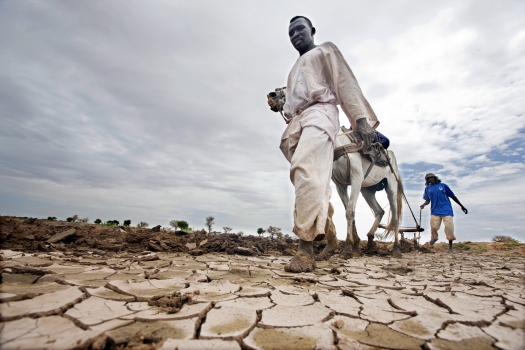Reasons Africa demands $1.3trn annually for climate finance
Africa is urgently calling for $1.3 trillion annually in climate finance to tackle its severe climate crisis. This bold request underscores the continent’s escalating need for substantial financial support to both adapt to and mitigate the impacts of climate change. As Africa faces increasing extreme weather events, rising sea levels, and other climate-related challenges, the […]

Africa is urgently calling for $1.3 trillion annually in climate finance to tackle its severe climate crisis. This bold request underscores the continent’s escalating need for substantial financial support to both adapt to and mitigate the impacts of climate change.
As Africa faces increasing extreme weather events, rising sea levels, and other climate-related challenges, the proposed figure represents a necessary boost to address these urgent issues and support sustainable development efforts across the region.
This demand was highlighted during a recent media briefing on the new climate finance goal led by prominent climate finance experts, Julius Mbatia and Iskander Erzini Vernoit, the Director of the IMAL Initiative for Climate and Development.
The briefing was held in anticipation of the upcoming COP29 conference, where global leaders will discuss and set new climate finance goals.
- Why NNPC must not be the sole buyer of Dangote petrol
- Chidoka Family empowers female entrepreneurs with N100,000 Grants
Vernoit and Mbatia expressed the need for increased funding to ensure that Africa can effectively address both its current and future climate challenges.
Conveying the gravity of the situation, Vernoit said, “We cannot be part of a regime that is not balanced. This is a moment to draw the line. As Africa and developing countries worldwide, we must be clear: we cannot continue participating in the UNFCCC process if we do not receive serious, new, and additional increases in finance to support our aspirations.”
Vernoit’s statement reflects the frustration and urgency felt by many African nations, emphasising that without significant financial support, the climate commitments made by global leaders will remain unfulfilled and largely symbolic.
“This specific point provides a basis for our approach. The UNFCCC regime has set numerous new objectives without the necessary finance to ensure their delivery. This is the moment we are willing to walk out if our demands are not considered seriously,” Vernoit added.
Vernoit’s remarks underline the critical need for concrete financial commitments and a shift away from the political posturing that has characterised past climate negotiations.
The push for $1.3 trillion is a call to action for developed countries to honour their commitments and deliver on promises made.
Julius Mbatia also weighed in on the situation, asserting, “The climate sector should not be approached the same way as development finance. It requires specific principles, such as being additional and new. The discussion on climate finance must focus on the needs of the African continent and be based on fair terms that reflect the realities on the ground. Grants and highly concessional financing are essential for supporting local communities and ensuring economy-wide resilience.” Mbatia’s comments emphasise the need for climate finance to be distinct from general development aid, highlighting the necessity for targeted, high-quality financial support that can genuinely address Africa’s unique climate challenges.
The press briefing also explored the shortcomings of the previous $100 billion annual climate finance goal, which was established at COP15 in 2009 but fell short of its targets.
Mbatia highlighted that the $1.3trn figure is grounded in scientific assessments and practical needs, noting, that “developing countries require at least $400bn annually for adaptation, loss and damage, and $1.9trn for energy system investments.
As COP29 approaches, African nations are preparing to use the upcoming conference to push for these financial demands and ensure that climate finance is directed to where it is most needed, especially now that the impact of climate change is heightening.
